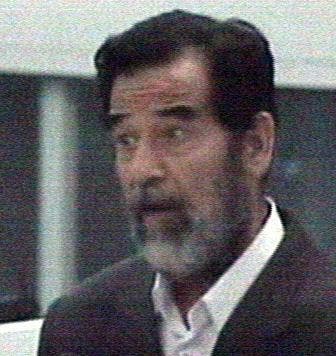BA was not warned about Iraqi invasion of Kuwait, Foreign Office reveals
A warning that Iraqi forces had entered Kuwait was not passed on to British Airways even though it had a flight heading to the Gulf state, the Foreign Office has disclosed.
Flight BA149 with 367 passengers on board landed in Kuwait in the early hours of August 2 1990, and the passengers and crew were detained by the invading Iraqi forces and held hostage for up to five months.
In a Commons written ministerial statement, Foreign Secretary Liz Truss said files being released to the National Archives show that British ambassador Sir Michael Weston warned the Foreign Office around midnight that an Iraqi incursion was under way as the flight was en route.
But Barry Manners, who was on board the flight, rejected the Government’s explanation and its apology, saying: “I’m gobsmacked … The evidence must be so refutable.”

In her statement, Mr Truss said: “The information was passed by the resident clerk to the head of the FCO’s Middle East Department and also to No 10, the Ministry of Defence, Cabinet Office and the Secret Intelligence Service, but not to British Airways,” Ms Truss said.
“The call made by HMA Kuwait has never been publicly disclosed or acknowledged until today. These files show that the existence of the call was not revealed to Parliament and the public.
“This failure was unacceptable. As the current Secretary of State, I apologise to the House for this, and I express my deepest sympathy to those who were detained and mistreated.”
There has long been speculation that the flight was allowed to continue to Kuwait, even though other flights were being diverted, because it was being used to carry a group of Special Forces into the country.
But, in her statement, Ms Truss said the files were consistent with a statement by ministers in 2007 that “the Government at the time did not attempt in any way to exploit the flight by any means whatever”.

The hostages were dispersed around Kuwait and Iraq, where they were used by Saddam Hussein as “human shields” in an attempt to deter attacks by Western forces to liberate Kuwait.
Some were subjected to abuse by the Iraqi troops and many were traumatised by the experience.
Mr Manners, who was held by Iraqi forces for four-and-a-half months, told the PA news agency: “If the Government was using British Airways as de facto military transport, come clean and admit it.
“I live in the real world, I’m not a snowflake – if they pulled us into a room and said: ‘Terribly sorry, we had to do it, have a year off paying income tax and here’s a gold card for British Airways, keep your gob shut’, I would say ‘fair enough’.
“But when people lie to me, then I get upset. So, no, I don’t accept the apology. It’s a fudge.”
The 54-year-old, from Kent, also rejected the denial that the handful of people who boarded the doomed flight late were special forces soldiers put on board to gain intelligence about the invasion.
Mr Manners said: “Who on earth were they, then? Members of a rugby team?
“I know they were soldiers.”
They were eventually allowed to return to the UK after an intervention by former prime minister Sir Edward Heath who went to see Saddam in Baghdad to appeal for their release, with the last hostages freed in December 1990.
In her statement, Ms Truss said the files show that, when Sir Michael called the resident clerk at the Foreign Office, it was unclear whether the Iraqi move across the border was “a limited or larger incursion”.
“At that point, the evidence in the files suggests that it was not possible to say with certainty what was happening,” she said.
“Similarly, the resident clerk in the FCO would have had no knowledge of the timing of flights into Kuwait.
“At the time there appeared to have been no formal arrangements by which information about such events could be passed from the FCO to airlines or the Department of Transport.
“A procedure to deal with situations like this now exists involving Government and the airline industry.”
A British Airways spokesman said: “These records confirm British Airways was not warned about the invasion.”


